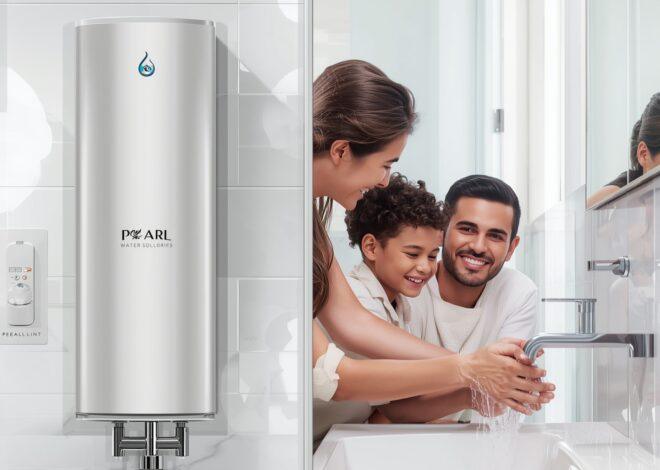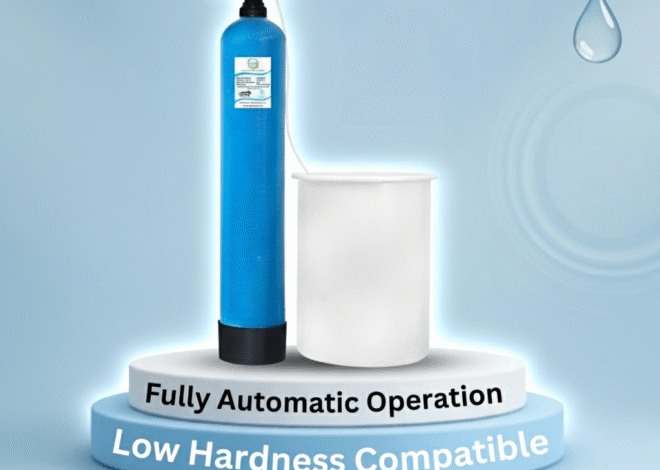
Water Softener vs Water Filter - Key Differences Explained | Pearl Water Technologies
Understand the difference between a water softener and a water filter. Learn benefits, uses, and which is right for your home.
Table of Contents
Introduction
What is a Water Softener?
What is a Water Filter?
Why Do You Need a Water Softener?
Why Do You Need a Water Filter?
Key Differences Between Water Softener vs Water Filter
Which One Do You Need?
Benefits of Installing a Water Softener
Benefits of Installing a Water Filter
Water Softener vs Water Filter - Cost Comparison
Installation and Maintenance
Common Myths About Water Softeners and Filters
How to Choose the Right System for Your Home
FAQs
Conclusion
Introduction
Clean water is vital for health, home, and daily comfort. But not all water is the same. Some homes face hard water problems, while others deal with impurities like chlorine, sediments, or bacteria. This is where water softeners and water filters come in.
Many homeowners confuse these two systems. They sound similar but serve different purposes. So, what is the difference between a water softener and a water filter? Let’s break it down.
What is a Water Softener?
A water softener removes hardness-causing minerals, mainly calcium and magnesium, from water.
Hard water leads to limescale buildup.
It damages plumbing, appliances, and fixtures.
Water softeners use ion-exchange resin beads.
They replace calcium and magnesium with sodium or potassium ions.
The result: soft, smooth water.
Soft water extends appliance life, makes soap more effective, and improves bathing comfort.
What is a Water Filter?
A water filter removes contaminants and impurities that affect water taste, odor, and safety.
Filters target chlorine, sediments, lead, pesticides, and bacteria.
Various types exist: sediment filters, carbon filters, RO filters, and UV filters.
Each filter type focuses on a specific problem.
Filtration improves water taste, smell, and clarity.
Unlike water softeners, filters do not remove hardness minerals.
Why Do You Need a Water Softener?
Hard water is a hidden problem in many households. Here’s why you may need a water softener:
Prevents limescale on faucets and tiles.
Protects washing machines and dishwashers.
Improves soap and shampoo lather.
Keeps clothes soft and bright.
Reduces maintenance costs on appliances.
Saves energy by improving heating efficiency.
If your water leaves white spots or scale, you likely need a softener.
Why Do You Need a Water Filter?
Not all water impurities are visible. A water filter ensures safe, clean, and great-tasting water.
Removes dirt, rust, and sand particles.
Eliminates chlorine and its strong smell.
Reduces heavy metals like lead and arsenic.
Kills harmful bacteria and viruses.
Provides safe drinking water for your family.
Enhances food and beverage taste.
If your water tastes odd or smells bad, a filter is essential.
Key Differences Between Water Softener vs Water Filter
Feature
Water Softener
Water Filter
Main Purpose
Removes hardness minerals
Removes contaminants & impurities
Removes Calcium/Magnesium
Yes
No
Improves Taste/Odor
Indirectly
Directly
Health Benefits
Protects skin & hair
Provides safe drinking water
Appliance Protection
Yes
Sometimes
Types Available
Salt-based, Salt-free
Sediment, Carbon, RO, UV
Maintenance
Regeneration needed
Cartridge replacement
Which One Do You Need?
Choosing between a water softener and a water filter depends on your water problem:
If your water leaves white marks, you need a softener.
If your water smells, tastes bad, or looks dirty, you need a filter.
Many homes actually need both.
Benefits of Installing a Water Softener
Prevents scale buildup in pipes and heaters.
Saves electricity bills.
Increases plumbing lifespan.
Improves soap effectiveness.
Keeps skin smooth and hair shiny.
Protects bathroom fittings from stains.
Benefits of Installing a Water Filter
Delivers clean, healthy drinking water.
Protects from harmful bacteria and viruses.
Removes chlorine and chemicals.
Provides clear, odor-free water.
Improves taste of tea, coffee, and food.
Reduces health risks from heavy metals.
Water Softener vs Water Filter - Cost Comparison
Water softener price:
Residential models: ₹18,000–₹45,000
Industrial units: higher depending on size
Water filter price:
Basic sediment filter: ₹1,000–₹3,000
RO water purifier: ₹10,000–₹25,000
UV + RO + Carbon combo: ₹15,000–₹35,000
Water filters usually cost less upfront. Water softeners save more in the long term by reducing appliance damage.
Installation and Maintenance
Water Softener: Needs professional installation. Requires salt refills and resin regeneration.
Water Filter: Easy installation. Needs filter cartridge replacement every 6–12 months.
Common Myths About Water Softeners and Filters
Myth: A water softener makes water safe to drink.
Truth: It removes hardness, not bacteria or chemicals.
Myth: A filter removes hardness.
Truth: Filters improve purity but don’t reduce hardness minerals.
Myth: Both systems are the same.
Truth: They solve different problems.
How to Choose the Right System for Your Home
Test your water hardness and contamination level.
Identify the main issue: hardness, chlorine, bacteria, or taste.
Consider your budget and maintenance preference.
Choose a trusted brand like Pearl Water Technologies for durability.
Many homes benefit from using both together.
FAQs
Q1: Do I need a water softener or a water filter?
If you face scale buildup, choose a softener. For safe drinking water, choose a filter.
Q2: Can I install both a softener and a filter?
Yes, many homes use both for complete protection.
Q3: Does a water softener improve water taste?
Not directly. It mainly prevents hardness-related issues.
Q4: How often should I replace filter cartridges?
Most filters need replacement every 6–12 months.
Q5: Is soft water safe to drink?
Yes, but it may contain small amounts of sodium.
Q6: Which is costlier, a water softener or a filter?
Softeners cost more initially, but save money by protecting appliances.
Q7: Do filters remove limescale?
No, only water softeners handle limescale.
Q8: What’s better for hair and skin - a filter or softener?
A softener prevents dryness and makes hair smooth.
Conclusion
Both water softeners and water filters improve water quality but serve different purposes.
A water softener removes hardness minerals, preventing scale and protecting appliances.
A water filter removes contaminants, providing safe and clean drinking water.
The right choice depends on your water problem, but many homes benefit from both systems together.
Investing in the right solution ensures healthy water, longer-lasting appliances, and peace of mind.
👉 For advanced solutions, visit https://pearlwater.in/water-softeners

